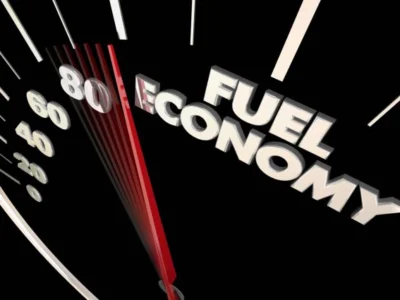Looking Back at the 2018 Elections (Governors Races & California House Seats).
Both sets of elections went well for pro-environmental candidates.
Before the election, I did blog posts on some key governors’ races and California House races. How did those come out?
As it turns out, pro-environmental Democrats swept these races, many of which had been rated as toss-ups and some of which did turn out to be very close. I picked these GOP-held seats because forecasters viewed them as in play, but certainly with no thought that the results would be so one-sided. I would not have been shocked if the Republicans had won most of them. So the Democratic sweep is notable.
U.S. House Races in California
There were two open seats and three GOP incumbents in these races. The incumbents had uniformly dismal environmental records. Interestingly, the Republican candidates generally gloss over their anti-environmental views on their websites. This maybe partly because in California, even a sizable percentage of Republicans are pro-environmental, according to a recent poll. Democrats were much more likely to make a point of mentioning the environment.
Here are the races, listed by district numbers (with incumbents where applicable), along with the views of the candidates.
10th District
This district in the Central Valley is closely balanced: Republican Rep. Denham had a 3% margin in 2016, and Hillary Clinton carried the district by the same amount.
Denham, the incumbent, has a League of Conservation Voters (LCV) lifetime rating of 6%. His campaign website supported an “all of the above” strategy and touts his support for the Keystone XL pipeline. His official congressional website said very little more, apart from the Republican obligatory call to eliminate regulations of all kinds. Apparently, being anti-environmental is not something Denham wanted to advertise.
Josh Harder, who teaches business courses at a community college, was Denham’s Democratic opponent. On his website, he gave a personal dimension to his pro-environment positions: “Like many children in the Central Valley, I grew up with childhood asthma because of our high air pollution. We can and must improve our adherence to clean air and water standards and invest in our children’s health.” He also strongly endorsed action on climate change. Harder won. He could be a future congressional leader on environmental issues.
25th District
Clinton carried this district north of LA by 7%, while Knight eked out a 3% margin.
Rep. Knight has an LCV lifetime rating of 3%. Apart from a general call to eliminate “expensive red tape” and over-regulation, his website said nothing about energy or the environment.
Katie Hill, who runs an organization providing shelter for the homeless, was Knight’s Democratic opponent. Her website endorses action on climate change and says, “Protecting the planet is not just an environmental issue, but a human health issue. Our families and communities need clean air, water and a non-toxic food supply so we can flourish for generations to come.” Hill won.
****
39th District.
This district overlapping Orange County was a prime target for Democrats.
Young Kim, who served a term as a state assembly member before being ousted in 2016, is the Republican on the ballot. One thing that was striking about her website was that she posted her tax returns. Her website said nothing about energy or environment.
Gil Cisneros, a Navy veteran who runs a small foundation advocating for public education, is the Democratic candidate. His website denounced Trump’s decision to withdraw from the Paris Agreement and Trump’s rollback of environmental regulations. This was an extremely close race, but it was called for Cisneros.
45th District
Clinton carried this Orange County district in 2016.
Walters, the incumbent, has an LCV lifetime rating of 4%. Under a picture of an off-shore oil rig, her website called for ending federal regulations that interfere with energy independence. It also applauded the Supreme Court’s stay of the Clean Power Plan.
Katie Porter, a law professor at UC Irvine and an Elizabeth Warren protégé, was Walters’s Democratic opponent. Her website pledged that she “will take on big oil and the corporate polluters to stop offshore drilling, and will fight to invest in renewable energy development, and support high emission standards and save important environmental protections.” The race turned out to be very close. But the race was ultimately called in Porter’s favor. Maybe it’s just my bias in favor of law professors, but I think she’s someone to watch going forward.
49th District
This was Darrell Issa’s seat. The district straddles Orange and San Diego counties. Diane Harkey (R) faced Mike Levin (D).
Harkey is a member of the state agency that oversees sales and property taxes. When I visited her website, the only thing under the issues tab was “Foreign Relations,” which was devoted to her fervent support for Israel. While I was searching for sources discussing her views on the issues, about the only thing I found was her proposal that House members be given an 8 p.m. curfew to keep them from partying at night. (No, I didn’t make that up.)
Levin described himself on his website as an “attorney focused on environmental and energy regulatory compliance and government affairs.” He also called himself “a passionate believer in clean energy and has over a decade of experience in the industry, helping to accelerate the transition towards more sustainable power generation and transportation options.” Levin won.
Governors’ Races
Illinois Bruce Rauner (R) is the Republican incumbent. He’s signed some important renewable energy legislation as part of a deal to get subsidies for nuclear plants. No environment/energy tab on his campaign website.
J.B. Pritzker (D) is the Democratic challenger. He promises to “put Illinois on a path toward 100% clean, renewable energy and attract commercial investment in clean energy production and transmission here in Illinois.” He wants Illinois to join the U.S. Climate Alliance. Pritzker won. Rauner was a very unpopular governor, so his loss did not come as a surprise.
Maine
Shawn Moody (R) billed himself as a “lifelong conservative” on his website. His pledge to “work to ensure Maine does not fall behind” seems very New England to me, conveying a becoming modesty about the state’s prospects. The environmental tab on the website sent a mixed message. It called for a balance between environment and economic needs – usually code for saying the environment comes in second – but he also touted an environmental certificate for his business and participation in a renewable energy project. This may have been window dressing: he’s a climate change denier. (see here)
Janet Mills (D) has a more optimistic view of Maine’s future, saying it’s time for bold change and that the state’s best days are ahead. A bit unusually for a Democrat, her website didn’t have an environmental tab on her webpage. But as state Attorney General, she has a strong record on environmental issues has been endorsed by the Maine Conservation Voters Action Fund. She does believe in the reality of climate change. Mills won.
Michigan
Bill Schuette is the state attorney general. He brags that “successfully opposed President Obama’s job-killing energy regulations that would have hurt Michigan’s economy and increased utility bills for hard-working families.” You get the picture.
Gretchen Whitmer was the Democratic challenger. Her website pledged to “Fix the Damn Roads.” The environmental issue discussed on her website was the need to clean up Michigan’s water after the Flint episode. She was endorsed by the Sierra Club’s Michigan chapter and won the race. Whitmer won.
New Mexico
Steve Pearce was the Republican candidate. He sounded ok on the environment if you read his website, but his voting record told another story. His lifetime score as a member of the U.S. House from the League of Conservation Voters (LCV) is 4%.
Michelle Lujan Grisham, the Democratic candidate, is also a House member. Here LCV score is 91%. The numbers speak for themselves about the difference between the two candidates. She won by a comfortable margin.
* * *
Assessed in terms of their environmental positions, these races turned out well for advocates of renewable energy, climate action, and environmental protection. Given the closeness of some of the House races, the same districts will also be battlegrounds in 2020.
OK, folks, time to put the 2018 elections in the rearview mirror and move on!
About Dan
Dan Farber has written and taught on environmental and constitutional law as well as about contracts, jurisprudence and legislation. Currently at Berkeley Law, he has al…
READ moreAbout Dan
Dan Farber has written and taught on environmental and constitutional law as well as about contracts, jurisprudence and legislation. Currently at Berkeley Law, he has al…
READ more






Reader Comments